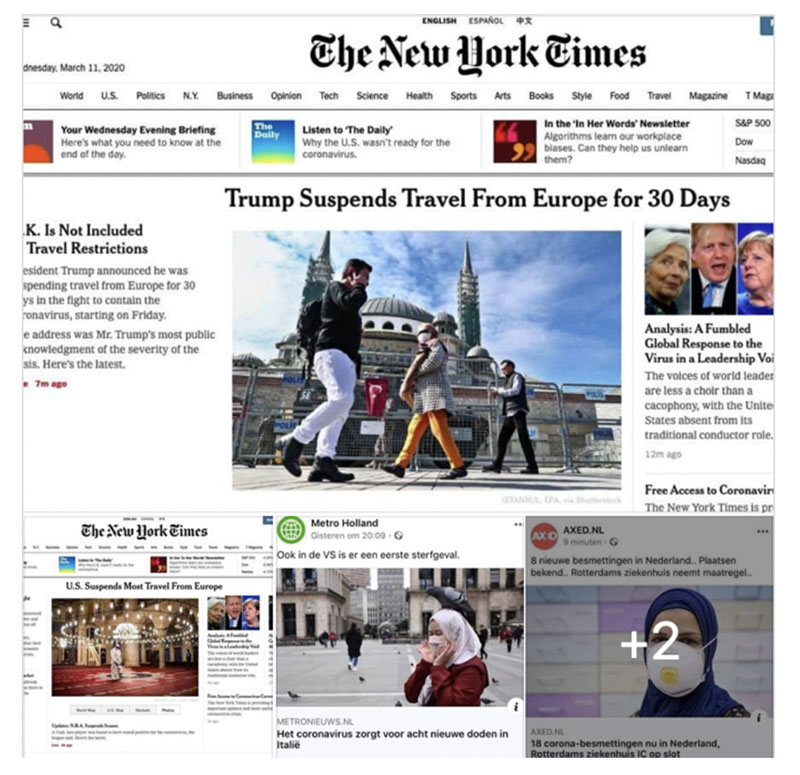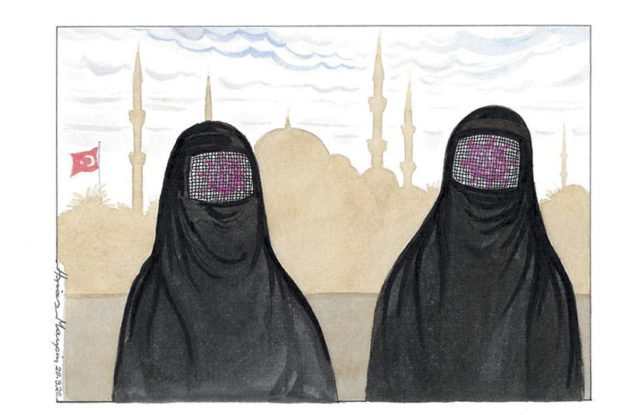By Farid Hafez
The global coronavirus pandemic theoretically gives human kind, and especially those in positions of responsibility, a chance to rethink life. Rethink what is important and what is less important. And it forces each and every one of the human family to focus on those things that are of value to us.
In these days, the silence of far-right populist leaders in the world speaks volumes. Rather than managing the crisis, it is the countries under their command that fail most. A president like Donald Trump, who does not only deny science, but also refers to the virus as a “foreign virus” or a “Chinese virus”, reminiscent of the imagined “Yellow Peril”, had little to offer in the wake of the first days of the crisis other than bad leadership. The same is true for Boris Johnson, who sends the oldest and most vulnerable of his nation into death and Jair Bolsonaro, who was offering nothing but denial of the severity of the pandemic. Time will tell, if this may be the beginning of the end for their political career.
A president like Donald Trump, who does not only deny science, but also refers to the virus as a “foreign virus” or a “Chinese virus”
Given this global crisis, it is stunning to see on one side, how hegemonic forms of racism seem to unconsciously inform the narrative of the coronavirus and on the other side, how anti-Muslim authors are continuing to mobilize against Muslims with the help of the debate on the coronavirus.
Already in the first few days, numerous media outlets around the world, from the New York Times to national newspapers in the Netherlands, the UK or Austria showed Muslims or mosques as the main image for covering the coronavirus pandemic. It was understandable that many Muslims around the world, especially those living in Europe, started mocking the media. Europe’s Muslims, who are often seen as the other, not-so-European or even anti-Western, are suddenly becoming the main symbol of a pandemic, once it hits Europe. The image of Islam is clearly connected with the worst imaginations of disease and threat.
 At the same time, far-right politicians are notably absent. Their silence reveals their incompetence and that their success relies much more on creating fear than on solving the problems of the people they should represent. For many Muslims around the world, this could even be a pause to take breath. Who is still interested in mobilizing against Muslims during such a pandemic?
At the same time, far-right politicians are notably absent. Their silence reveals their incompetence and that their success relies much more on creating fear than on solving the problems of the people they should represent. For many Muslims around the world, this could even be a pause to take breath. Who is still interested in mobilizing against Muslims during such a pandemic?
It was understandable that many Muslims around the world, especially those living in Europe, started mocking the media.
But a few dedicated anti-Muslim ideologues seem to step out of the line. To give just a few recent examples: a German anti-Muslim celebrity author, Seyran Ates, has tweeted a few days before the International Day for the Elimination of Racial Discrimination to take self-isolating serious. So far, so good. But she could not hold herself back from further commenting on twitter:
“Think in these days of the millions of women worldwide, who have to stay like this their whole life. Not because of the virus, but because of their men, who dictate them to do so because of religions”.
Another example is a cartoon that was published in the daily Athenian newspaper Kathimerini, which shows two hidden coronaviruses behind the grid of two women wearing a Burqa, who stand in front of a Turkish mosque.
In Turkey, a cartoon was shared by a former CNN Türk journalist, Enver Aysever, saying that the only problem of the virus was the old traditional Muslim people, whose brain he suggests to disinfect.
In the drawing, a masked man wearing a disinfection mask, gloves and overalls squeezes medicine into the hollow skull of a person we understand to be a Muslim. The Muslim has a hooknose, reminiscent of old anti-Semitic caricatures.
These few examples show the deep seated hate that does not stop at the door of an epidemic crisis that the whole world faces in these days. And it is these days that will show, who is really obsessed with Islamophobia, unable to see the full picture of a global crisis that needs all people in this world to work together.

















No Comments